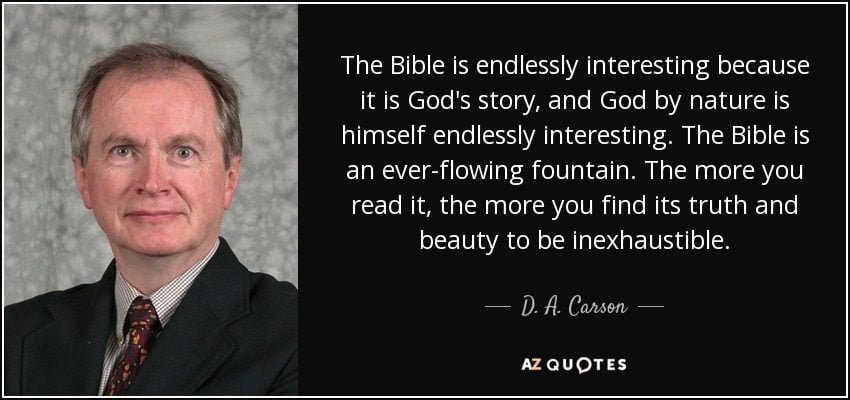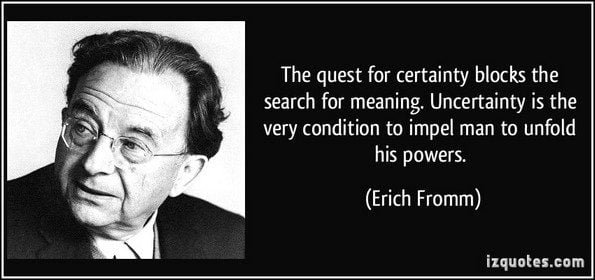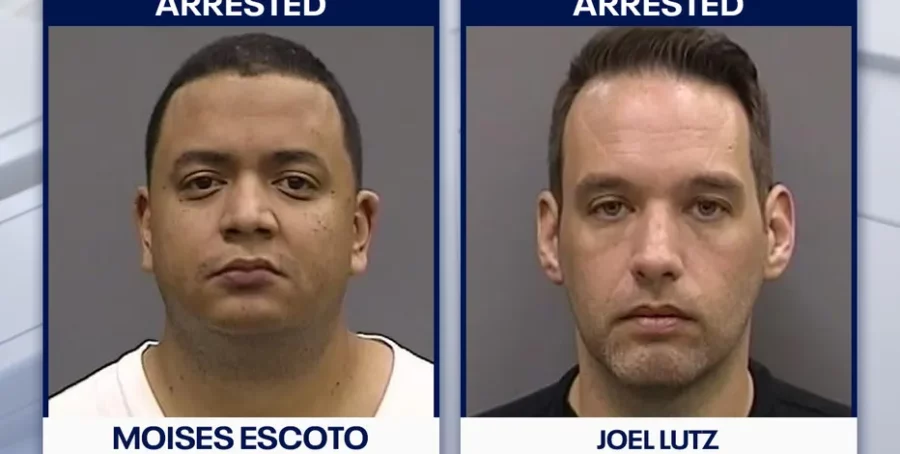
Today, I received an email from an Evangelical using a fake email address: godlovesyou@gmail.com. Coward. 🙂
What follows is my response to God Loves You. My response is indented. All spelling and grammar in the original.
Bruce, you know that God has been trying to reach you all your life. You can’t escape Him. He’s real whether you believe Him or not. He’s done so much for you.
I know no such thing. If my life tells me anything about God it is this: his phone line is disconnected. God’s is supposedly the creator of all things; the sovereign lord, ruler, and king. Yet, according to God Loves You (GLY), the Christian God has been trying to reach me. God has every tool and method at his disposal, yet the best he is able to do is send people such as GLY to pass me a note. If God wants to reach me, why not contact me directly? Send me an email, a text, or call me on the telephone (260-657-0019). Better yet, if I am so important to God, why not send Jesus to my doorstep and have him take me out to lunch? I guarantee you that if Jesus shows up and takes me out to eat, I am going to listen.
Instead, God keeps sending people such GLY; people who show me no respect; people who preach at me; people who insult me; people who attack me and my family and the readers of this blog; people who lack a basic understanding of what the Bible teaches.
I am here, God. Come and get me.
GLY claims God is real, yet he provided no evidence for his claim. This is a common ploy by Evangelical zealots. They are presuppositionalists. God is self-evident to them, so they think he should be self-evident to everyone. Not me. Convince me that the God of the Protestant Christian Bible exists and he is as the Bible portrays him, I might believe. I say “might” because, let’s face it, the God of the Bible is a violent, genocidal son of a bitch, so I doubt I would want to worship and obey such a malevolent deity.
GLY claims God has done so much for me. Really? What has God done for me? Virtually everything in my life can be traced back to material, biological means. The few unexplainable events in my life are not enough to convince that GLY’s God exists.
I’m sorry for any hurt that humans and the church have caused you. People will hurt you, this earth is ruled by Satan, but this is not our home forever. The teacher is always silent during the test. Whatever happened to you, whatever you’re going through, it’s just a test to see if you’re faithful.
I did not leave Christianity because of the hurt caused by humans and the church. If you really want to know why I deconverted, please read the posts on the WHY? page. Seek and ye shall find, GLY.
I am an atheist, so I don’t believe in the existence of deities, especially the God of the Bible. Since God created Satan, it stands to reason that I don’t believe in her either. Earth is ruled, controlled, and dominated by humans, other animals, and natural sources. I see no evidence for the claim that the earth is ruled by Satan. Again, I am open to being proved wrong. Just have Satan contact me and we can talk.
Evidently, whatever I have experienced in this life is a “test” from God. Of course, the giver of this test is, to quote GLY, “silent.” How, then, can I know it is God testing me? As an atheist, I live by the maxim, “shit happens.” I can explain my present trials, suffering, and adversity without invoking the name of God or Satan. MY health problems are easily explainable, albeit not easily treatable. I have accepted that my suffering, the unrelenting pain and debility, is my lot in life. I do what I can to ameliorate my symptoms, hoping to live as long as possible. What more can I do but get up each morning and try to do my best?
I find that this is a far better way to live than wondering whether God is, at any given moment, testing, trying, or punishing me.
Eventually youre going to die, which place will you choose?
There’s been countless of testimonies of those who died and have seen the afterlife (check YouTube!). Everyone who has died has said the same things and Jesus sent them back to tell their story.
Yes, I am, sooner, than later. I know that I am at the end of my life. When I die, I choose cremation and nothingness. I see no evidence for Heaven, Hell, or an afterlife. Those claiming to have died and gone to Heaven and Hell are delusional liars. The only evidence they provide for their claims are fanciful stories. I find it interesting that none of these stories agree with any of the others. Why is that? Humans have been making up “supernatural” stories for thousands of years. The Bible is one collection of these stories.
If GLY wants me to believe these stories are true, he is going to have to provide empirical evidence for them. I will not take his word for it.
There’s a lot of scientific and historical evidence that Jesus was real and many witnesses to that (Google and learn yourself!).
I wonder if GLY forgets or doesn’t know that I was a college-trained Evangelical pastor; that I pastored churches for twenty-five years; that I know the extant source material for the existence of Jesus inside and out. There is not, as GLY says, “a lot of scientific and historical evidence that Jesus was real and many witnesses to that.” There are the Gospels and a handful of disputed historical mentions of Jesus. That’s it. I know of no scientific evidence that proves ANYTHING about Jesus. All we can know is that a Jewish apocalyptic preacher named Jesus lived and died in Palestine two thousand years ago.
But what do I know? According to GLY, I need to “Google” and learn the “truth.” 🙂
I know you’ve been hurt, but in heaven, there will be no more suffering. I promise. Turn back to God.
GLY knows no such thing. He has read a couple of posts on this site and decided that is enough for him to deconstruct my life. He is lazy and lacks curiosity. Search Google, GLY, search Google. You will find thousands of blog posts I have written and podcast interviews I have given.
Life is suffering. Live long enough and you will suffer, sometimes horribly. I have an advanced degree in suffering. I don’t need the promise of salvation and Heaven to make it through life. I find meaning and purpose in my wife of forty-five years (my best friend and lover), our six children, our thirteen grandchildren, the Cincinnati Reds, Cincinnati Bengals, and this blog. Yes, I am in a lot of pain. Yes, sometimes I want to die. But, I remind myself that I have much to live for. I don’t need the promise of a room in God’s Trump Hotel to give my life meaning and purpose. I feel sorry for people who have no sense of meaning and purpose outside of the hope of eternal life. They have bought into the Apostle Paul’s lie: if we only have hope in this life we are miserable (1 Corinthians 15:9).
GLY implores me to turn back to God. Nope, not going to happen. I have weighed the central claims of Christianity in the balance and found them wanting. What is there about Christianity that I don’t know, GLY? By all means, educate me. 🙂
If you’re still alive, Hes still waiting to give you another chance. I will pray for your hardened heart to be softened, for you to come back and have a relationship with Him again. God is good but the world is not, Satan has deceived you.
What a pathetic God Jesus is, who is forced to wait on fallible, frail sinners. If God wants to save me, he knows where I am.
The only thing that “hardens” my heart toward Christianity is the endless emails and social media messages I receive from the GLYs of the world. Why would I ever want to worship their God? They bully, badger, threaten, and judge me, yet they want me to worship their God. No thanks. GLY and others like them are the worst possible advertisement for Jesus and his wonderful, matchless, awesome, supercalifragilisticexpialidocious grace.
If you want to spark your faith again, watch Isaiah Saldivar and Vlad Savchuk on YouTube. Learn about the deliverance ministry and casting out demons! We need to open our eyes to the supernatural, the spiritual realm. There’s so many testimonies out there now (YouTube – Delafe Testimonies), that show and prove the true existence of God!!
Sigh (Please see Why I Use the Word “Sigh.”)
I have seen two demons in my life: my youngest grandsons. 🙂 Boy, are they “devilish.”
It is clear to me that GLY has a low evidentiary standard for believing things. If he sees it on the Internet, it must true. I have a much higher evidentiary standard than GLY and other Christians like him. YouTube ain’t going to cut it. Gawd, do I actually have to say this?
God did not create this world for us to suffer and have pain. The result of our sins and our ancestors sins have caused us much burden.
Sigh, Sigh, Sigh. Ugh. 🙂
If God is the creator of all things and controls EVERYTHING, he is culpable for pain, suffering, and death. Either God is all-powerful, or he is not. Either he is all-knowing, or he is not. Either he is everywhere, or he is not. Orthodox Christianity says God is all-everything. Based on the teachings of historic Christianity, GLY is preaching heresy. OMG, repent, GLY, lest you end up in Hell when you die! 🙂
I believe that you may be curious about the supernatural so I suggest looking into deliverance. As Jesus cast out demons and heal the sick, you too can be healed! Whatever sickness you’re going through, you will be healed in the name of Jesus! Seek deliverance, Seek Him! Dare God to reveal Himself to you! HE WILL!!!
No, I am not curious, in the least, about the supernatural. I am a materialist. I have no room in my worldview for supernatural mumbo-jumbo.
Let me put GLY’s claims to the test! Jesus, I believe you heal people. I double-dog dare you to reveal yourself to me. I triple-dog dare you to heal me of fibromyalgia, gastroparesis, and degenerative spine disease. Jesus, if you heal me of these things, I will abandon atheism and worship you as my Savior and my God. Okay, Jesus, the ball is in your court.
GLY promises that God WILL hear and answer my prayer. If he doesn’t, that mean GLY is a liar and a false prophet worthy of being stoned to death.
Jesus loves you. God loves you. I love you.
Jesus is dead, God doesn’t exist, and GLY doesn’t know me. None of them “love.” me. I am sick and tired of shallow, cheap, sentimental Christian “love.” Gag me with a spoon. I have all the love I need in life — no Jesus, God, or Christians needed.
Saved by Reason,

Bruce Gerencser, 66, lives in rural Northwest Ohio with his wife of 45 years. He and his wife have six grown children and thirteen grandchildren. Bruce pastored Evangelical churches for twenty-five years in Ohio, Texas, and Michigan. Bruce left the ministry in 2005, and in 2008 he left Christianity. Bruce is now a humanist and an atheist.
Connect with me on social media:
Your comments are welcome and appreciated. All first-time comments are moderated. Please read the commenting rules before commenting.
You can email Bruce via the Contact Form.










